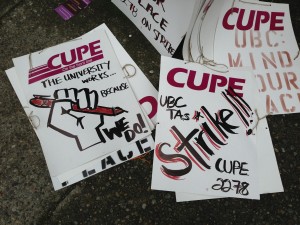Scott Carlson, Chronicle of Higher Education, February 5, 2014– Thirty-four pages of research, branded with a staid title and rife with complicated graphs, might not seem like a scintillating read, but there’s no doubt that a report released on Wednesday will punch higher education’s hot buttons in a big way.
The report, “Labor Intensive or Labor Expensive: Changing Staffing and Compensation Patterns in Higher Education,” says that new administrative positions—particularly in student services—drove a 28-percent expansion of the higher-ed work force from 2000 to 2012. The report was released by the Delta Cost Project, a nonprofit, nonpartisan social-science organization whose researchers analyze college finances.
What’s more, the report says, the number of full-time faculty and staff members per professional or managerial administrator has declined 40 percent, to around 2.5 to 1.
Full-time faculty members also lost ground to part-time instructors (who now compose half of the instructional staff at most types of colleges), particularly at public master’s and bachelor’s institutions.
And the kicker: You can’t blame faculty salaries for the rise in tuition. Faculty salaries were “essentially flat” from 2000 to 2012, the report says. And “we didn’t see the savings that we would have expected from the shift to part-time faculty,” said Donna M. Desrochers, an author of the report.
The rise in tuition was probably driven more by the cost of benefits, the addition of nonfaculty positions, and, of course, declines in state support.
Howard J. Bunsis, a professor of accounting at Eastern Michigan University and chair of the American Association of University Professors’ Collective Bargaining Congress, wasn’t surprised by the conclusions of the study.
“You see it on every campus—an increase in administration and a decrease in full-time faculty, and an increase in the use of part-time faculty,” he said. With that trend, along with rising tuition and falling state support, “you’re painting a pretty fair picture of higher ed,” he continued. “It’s not what it should be. What’s broken in higher ed is the priorities, and it’s been broken for a long time.”
Read More: Chronicle of Higher Ed

 Follow
Follow

